What Switzerland achieved at the UN Security Council

In 2023 and 2024 Switzerland served as an elected member on the UN Security Council for the first time. In October 2024 it held the Council’s presidency for the second time. What could a country such as Switzerland achieve in the UN Security Council given the highly polarised international context? An analysis.
Switzerland entered the Security Council during extremely difficult times marked by high geopolitical competition, which impeded the Council from effectively addressing the enormous human suffering in conflicts such as Gaza, Ukraine, Sudan and Myanmar. The five permanent member states – China, France, Russia, the US and the UK – are increasingly using their veto rightExternal link: five resolutions were vetoed on Gaza alone before the Council could finally call for a ceasefireExternal link in its resolution 2728 in March 2024.
Sara Hellmüller and Lucile Maertens
Sara Hellmüller (Senior Researcher at ETH Zurich) and Lucile Maertens (Associate Professor at the Geneva Graduate Institute) are co-investigators of a projectExternal link that academically documents Switzerland’s first membership on the UN Security Council. The project is a cooperation between the Geneva Graduate InstituteExternal link, ETH ZurichExternal link, and the University of LausanneExternal link and is funded by the Fondation pour l’Université de LausanneExternal link.
Unilateral actions by member states circumventing the UN, such as Russia’s full-scale invasion of Ukraine, and the late payment of due contributions leading to a critical liquidity crisis, erode multilateralism. October 2024, when Switzerland held the Council’s presidency, was especially challenging. The UN came under heavy attack, both rhetorically, when the Israeli government declared its Secretary-General “persona non grata”, as well as physically, when the Israeli army attacked its UNIFIL peacekeepers in Southern Lebanon or when the Israeli parliament outlawed the activities of the UN Relief and Works Agency for Palestine Refugees (UNRWA).
Such a polarised context can impede elected members from fully exploiting the potential of their membership as they hit the limits of power politics, ultimately questioning their influence. For Switzerland in particular, the mandate was domestically debated, and its candidacy was subject to a parliamentary decision. At the same time, the Swiss mandate shows that elected members can play important roles: Switzerland contributed to advancing thematic and geographical files and used innovative working methods to circumvent blockages.
Advancing thematic and geographical files
Thematically, Switzerland established itself as a fierce promoter of international law. It recalled international (humanitarian) law in all its interventions on politically blocked topics and promoted specific aspects, such as the protection of civilians. The adoption of a Swiss resolution on the protection of humanitarian and UN personnel in conflict zonesExternal link constituted a particular diplomatic success. Switzerland also strengthened legal instruments, for instance by acting as a “focal point” for issues concerning the International Criminal Court (ICC)External link together with Japan or by recalling the importance of the Geneva Conventions during an informal Council visit to GenevaExternal link in August 2024.

Switzerland also contributed to keeping climate security on the agenda despite the contestation of some member statesExternal link. Language on climate securityExternal link was integrated in peace mission mandate renewals, such as for the UN Integrated Office in HaitiExternal link (BINUH). Switzerland was also co-penholder with Sierra Leone drafting a presidential statementExternal link adopted on May 24, 2024, on the Sahel and West Africa that acknowledged the exacerbating effect of climate change on security in the region. And it co-chairs the informal expert group on climate securityExternal link with Mozambique.
Finally, especially during its presidency, Switzerland also promoted the Women, Peace and Security (WPS) agenda, with Swiss President Viola Amherd chairing the annual open debateExternal link on the topic and recalling the important role of women’s increased participation in peace processes. Switzerland also invited a high number of female briefers to the Council, bringing them to the same level as the number of male briefers (each 28)External link, and it organised a press stakeout on the vital role of womenExternal link in peacebuilding ahead of a Council briefing on Colombia.
In terms of geographical files, Switzerland contributed to the renewal of UN peace missionsExternal link mandates. Despite backlashes as flagship peacekeeping operations, like the one in MaliExternal link or the Democratic Republic of CongoExternal link, have withdrawn or are in the process of doing so, other missions saw their mandate renewed, such as in ColombiaExternal link or South SudanExternal link. Switzerland, in particular, successfully led negotiations on the renewal of the mandate of EUFOR ALTHEA in BosniaExternal link in November 2023.
The month of the Swiss presidency was particularly marked by challenges related to the escalating tensions in the Middle East. Switzerland used the different tools at its disposal as president to respond to the situation. It organised for instance a media stakeoutExternal link in support of Secretary-General António Guterres, published press statements on behalf of all Council members denouncing the attacksExternal link on peacekeepers such as UNIFIL, and underlined the indispensable workExternal link of UNRWA. It also organised emergency meetings, for instance in response to the escalating violence between Iran and IsraelExternal link.
More
Innovating through working methods
Switzerland also used innovative approaches to the Council’s working methods. First, it relied on coalitions, diplomatic know-how and recognised expertise to draft resolutions and have them adopted. This was the case for the resolution 2728 calling for a ceasefire in GazaExternal link, which was the first resolution ever put forward by all ten elected members.
Second, Switzerland attempted to renew the Council’s approach to facts by advocating for what it called science diplomacyExternal link. While it organised an informal meeting on this topic during its first presidency in May 2023, it pursued this agenda item in its second presidency in October 2024 through a high-level briefing chaired by Foreign Minister Ignazio Cassis. This led to a consensual presidential statementExternal link recognising the role of scientific development on peace and security. Switzerland exploited the highly political role of the President of the Council to advocate for less polarised and evidence-based discussions and decision-making.

Third, Switzerland relaunched field visits with Council members. It organised first a visit to South SudanExternal link for the Council’s informal expert group on Women, Peace and Security, and then it co-led a mission to ColombiaExternal link in February 2024. By decentring the Council from New York, Switzerland contributed to countering criticism of a Council whose political games and blockages may appear disconnected from the reality of the different contexts on which it makes daily decisions.
Finally, Switzerland reinforced existing partnerships between the Council and regional organisations, particularly the African Union. During Switzerland’s first presidency, Viola Amherd interveneExternal linkd in support of funding for African Union-led peace operations, which was endorsed in a resolution adopted in December 2023External link. Switzerland also facilitated joint eventsExternal link between the UN and the African Union, fortifying its image of a promoter of multilateralism.
Despite these important contributions, enormous tensions persist between the great powers, resolutions are not always implemented, and the long-term effect of innovation in the working methods remains to be evaluated.

More
Our weekly newsletter on foreign affairs
What’s next?
The legacy of Switzerland’s first mandate at the Security Council is manifold. In the short term, it remains to be seen if Switzerland can capitalise on its raised international profile to maintain its role as advocate of multilateralism, including through its commitments to the Council of EuropeExternal link and UN Human Rights CouncilExternal link, and the close relations it built especially with the five permanent members.
In the medium term, the Swiss mandate at the Security Council may also impact on International Geneva: Switzerland promoted Geneva-based actors and expertise and emphasised the importance of the Geneva-New York dialogue. The future will show if these efforts permanently facilitate closer collaborations between the two UN hubs.
In the long term, the interpretation of the successes (and failures) of this first mandate will inevitably affect the decision to position Switzerland for a second mandate in the near future.
Overall, the Swiss experience at the Council has shown how demanding the role of elected members is, both in terms of the level of expertise required as well as the political risks involved as it draws high scrutiny. But it also demonstrated the crucial role elected members play, especially in the face of a highly polarised Council, pending political courage and willingness to innovate and even potentially reform the current system.
What really happens at the UN? Our podcast Inside Geneva with a special episode from New York:
Edited by Benjamin von Wyl/ts

In compliance with the JTI standards
More: SWI swissinfo.ch certified by the Journalism Trust Initiative
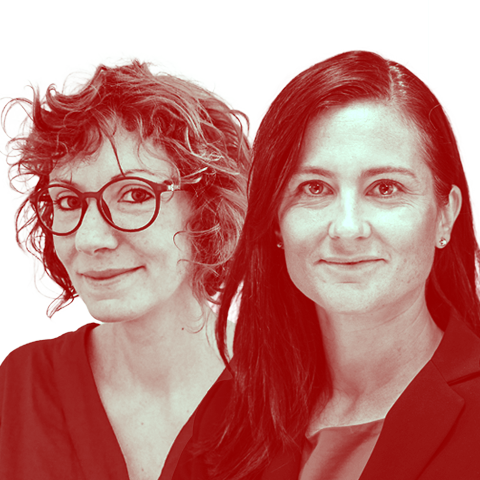









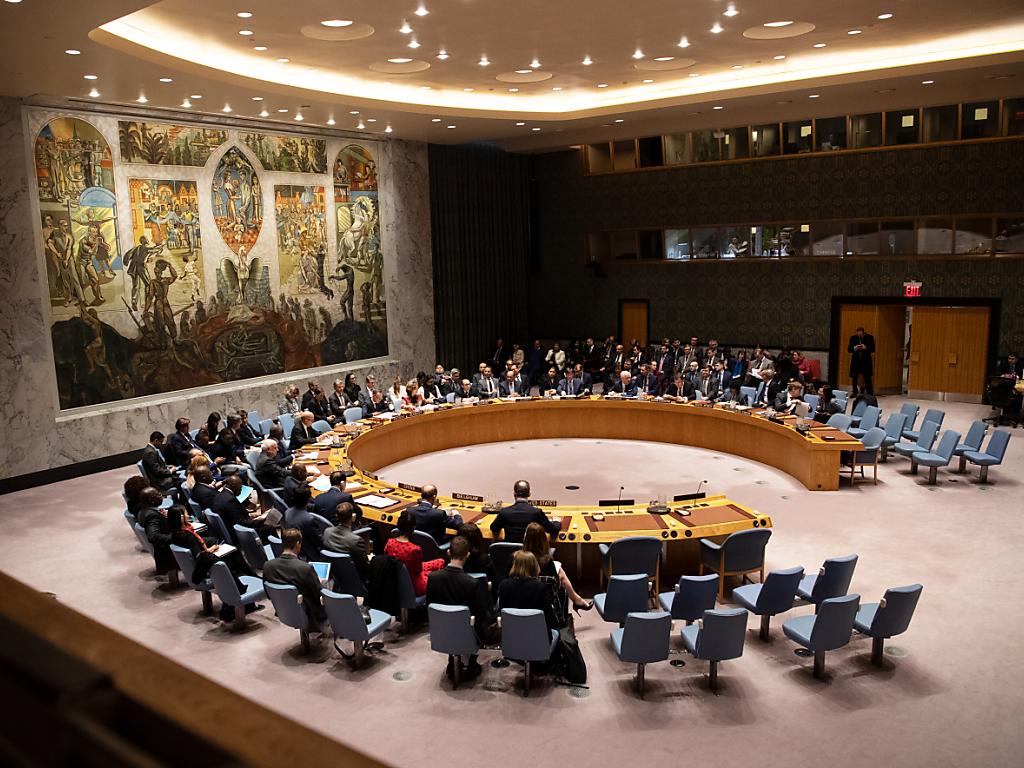
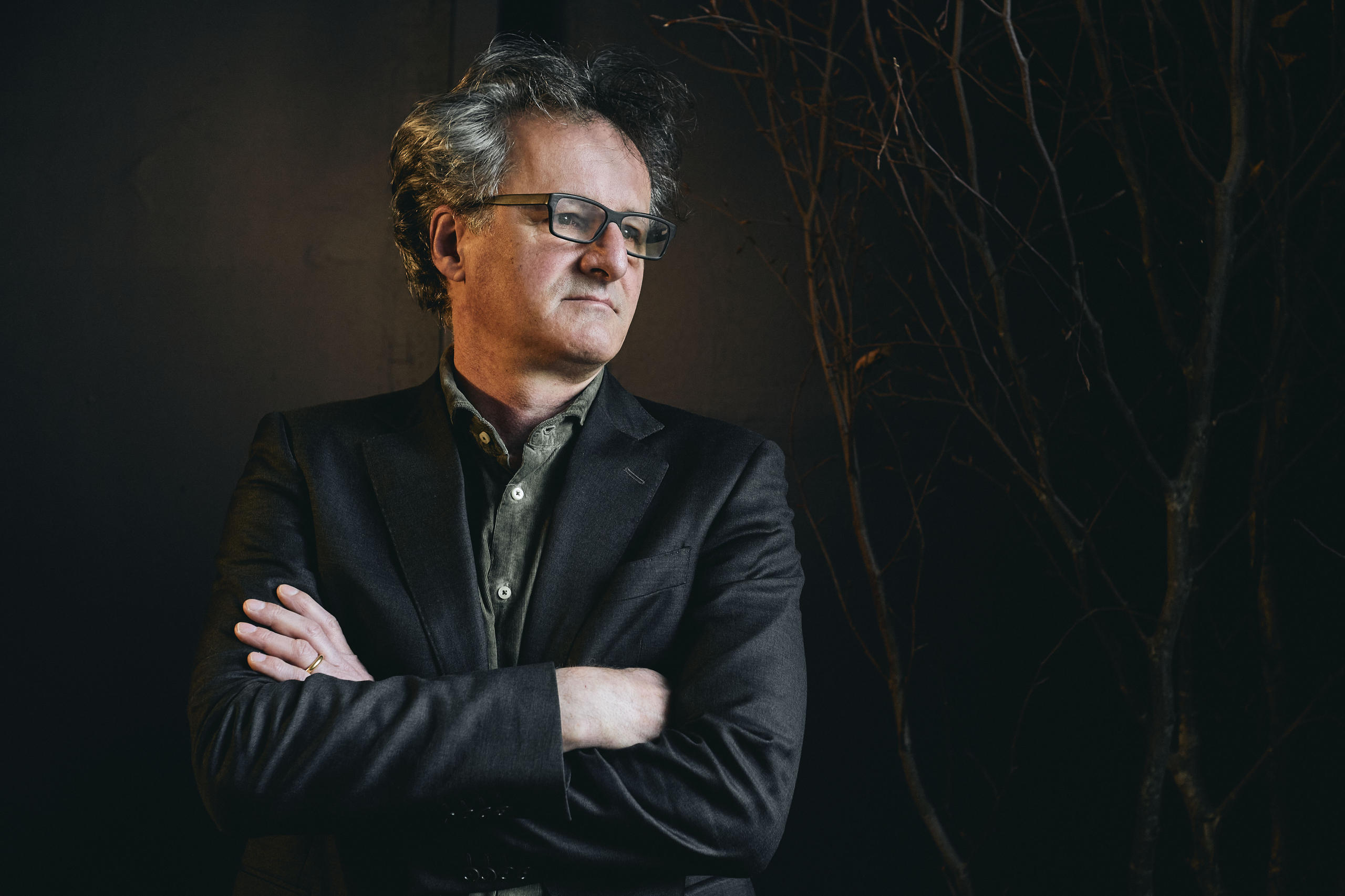
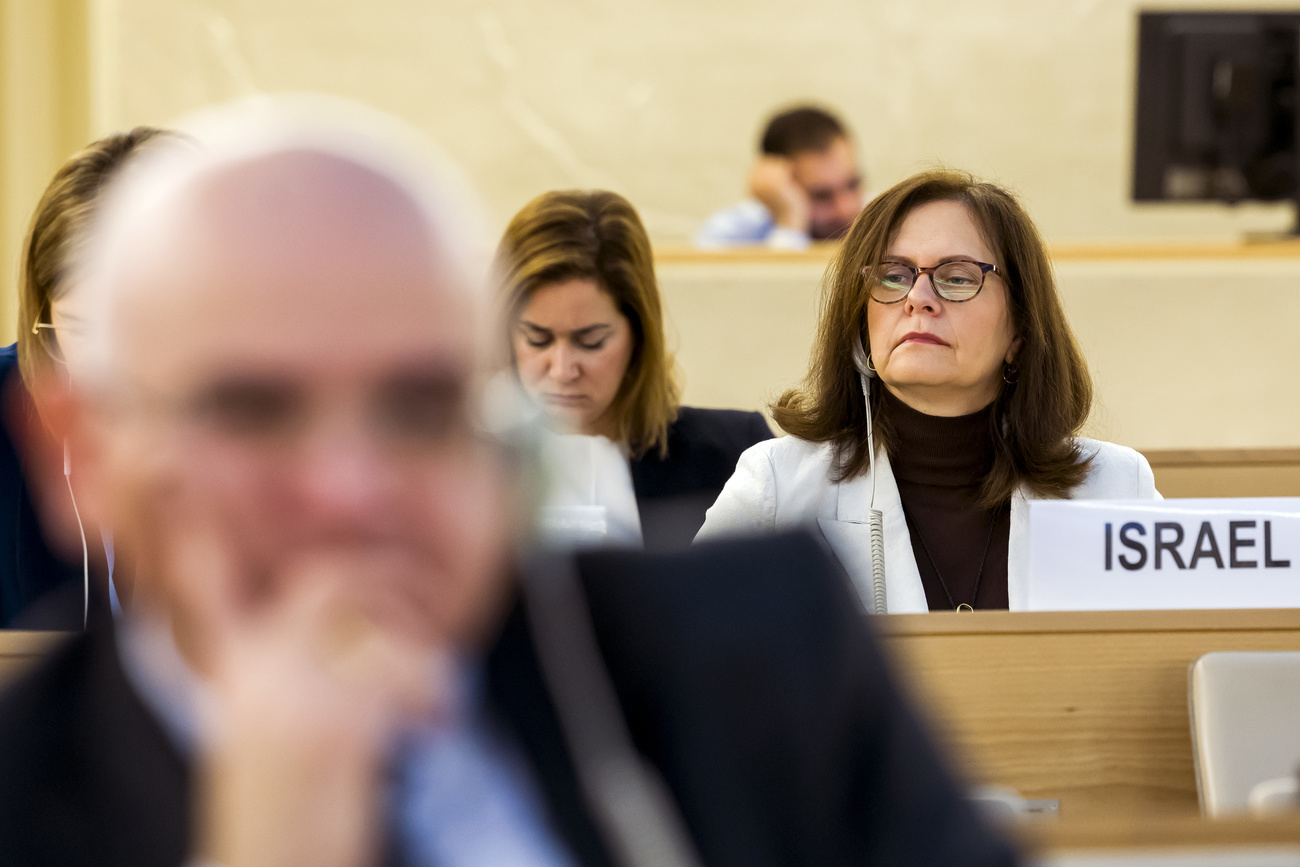
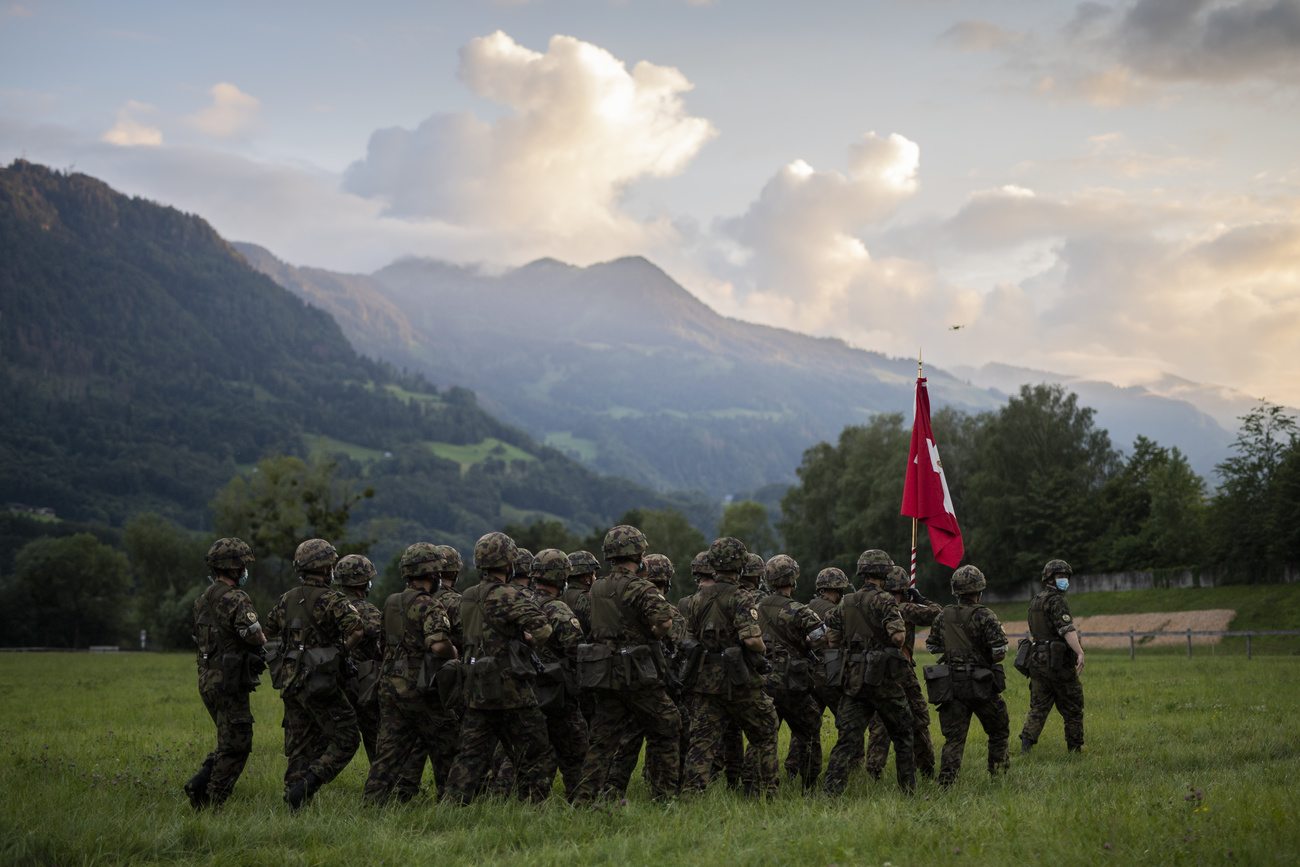
You can find an overview of ongoing debates with our journalists here . Please join us!
If you want to start a conversation about a topic raised in this article or want to report factual errors, email us at english@swissinfo.ch.